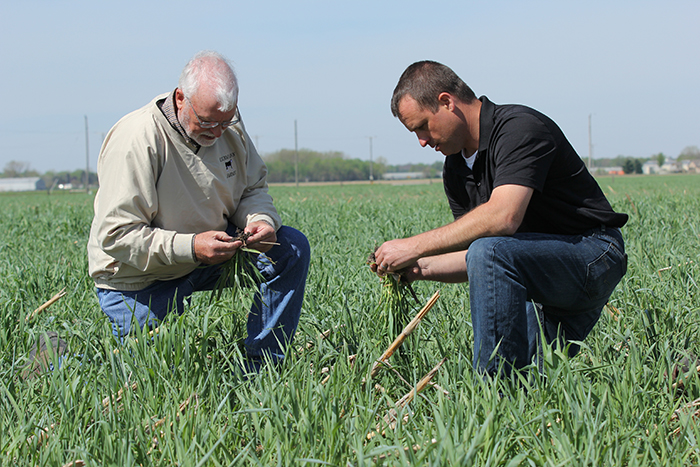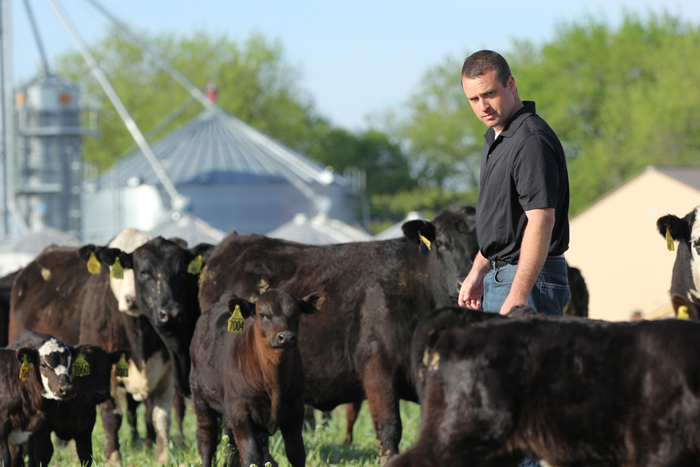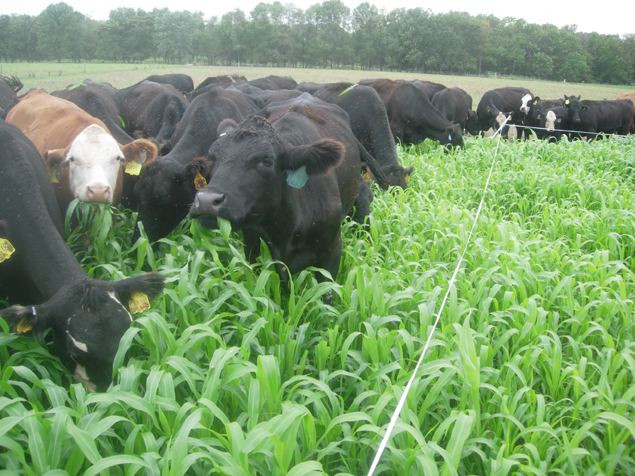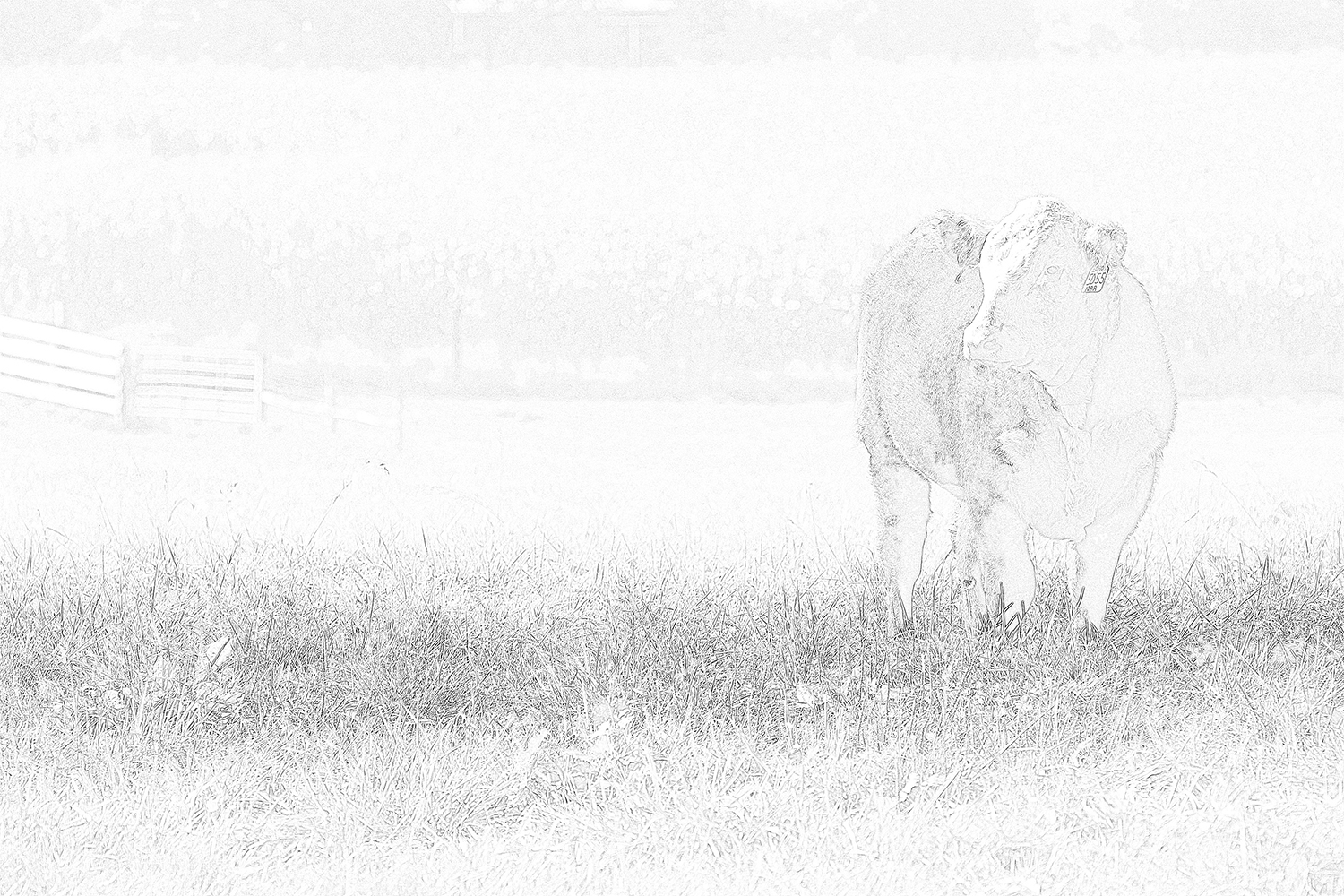
The Isermann Family
The Isermann family has been farming near Streator since 1851. Traditionally a row crop operation, the Isermanns looked to beef cattle as an opportunity that might help them grow and diversify their family farm.
Stewards of the Land and Cattle
The Isermann family has been farming near Streator, IL since 1851. Traditionally a row crop operation, the Isermanns looked to beef cattle as an opportunity that might help them grow and diversify their family farm.
David and his wife, Susan, farm with their son Jim, his wife, Lori, and their three young children. Jim decided he wanted to come back to the farm after college with the desire to raise cattle and his dad embraced the idea. While the family has been farming in this area for a long time, they're fairly recent beef producers. The cattle enterprise started with just six cow-calf pairs, but has grown to a cow-calf herd of 60 Angus-based females. As their cow herd grew, they looked for solutions to better utilize row crop land to support the cow herd, while also improving the land for farming.
The Isermanns work 900 acres in Livingston and LaSalle Counties. Around 120 of those acres are in permanent forage with a rotational grazing system. The rest are in production using a row crop rotation and almost half of that land has permanent fencing to allow for cover crop and crop residue grazing. The intention was to pursue a rotational grazing system to try to raise as many cattle possible on a small amount of acreage to increase profitability. While cover crops weren’t in the original plan, Dave and Jim saw early potential in incorporating them as an added feed source.

For the Isermanns, utilizing cattle to graze cover crops has improved the economic viability of a practice that has important implications for soil health and the environment. Dave and Jim recognize that while sustainability might be more of a buzzword these days, there’s a lot of common sense that goes along with the notion. They described sustainability as a three-legged stool with environmental responsibility, economic opportunity and social diligence as the requirements for steady balance. Today, the seventh generation of the Isermann family is growing up on the farm, and it’s certain they’ll be passed not only a heritage for stewardship on the family farm, but also a strong understanding of what it will take for the operation to continue to be sustainable in the future.
“We’re producing a product that I think people really want and we need to do it in a way that we’re proud of while easing consumer concerns about farming. I want consumers to know that we live on these farms and we’re going to do what’s right not only for our own family, but for their family too."
-Dave Isermann

